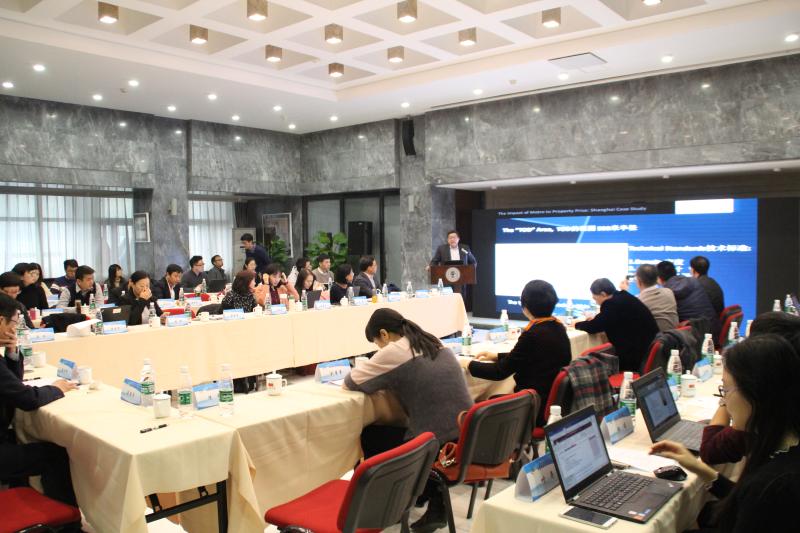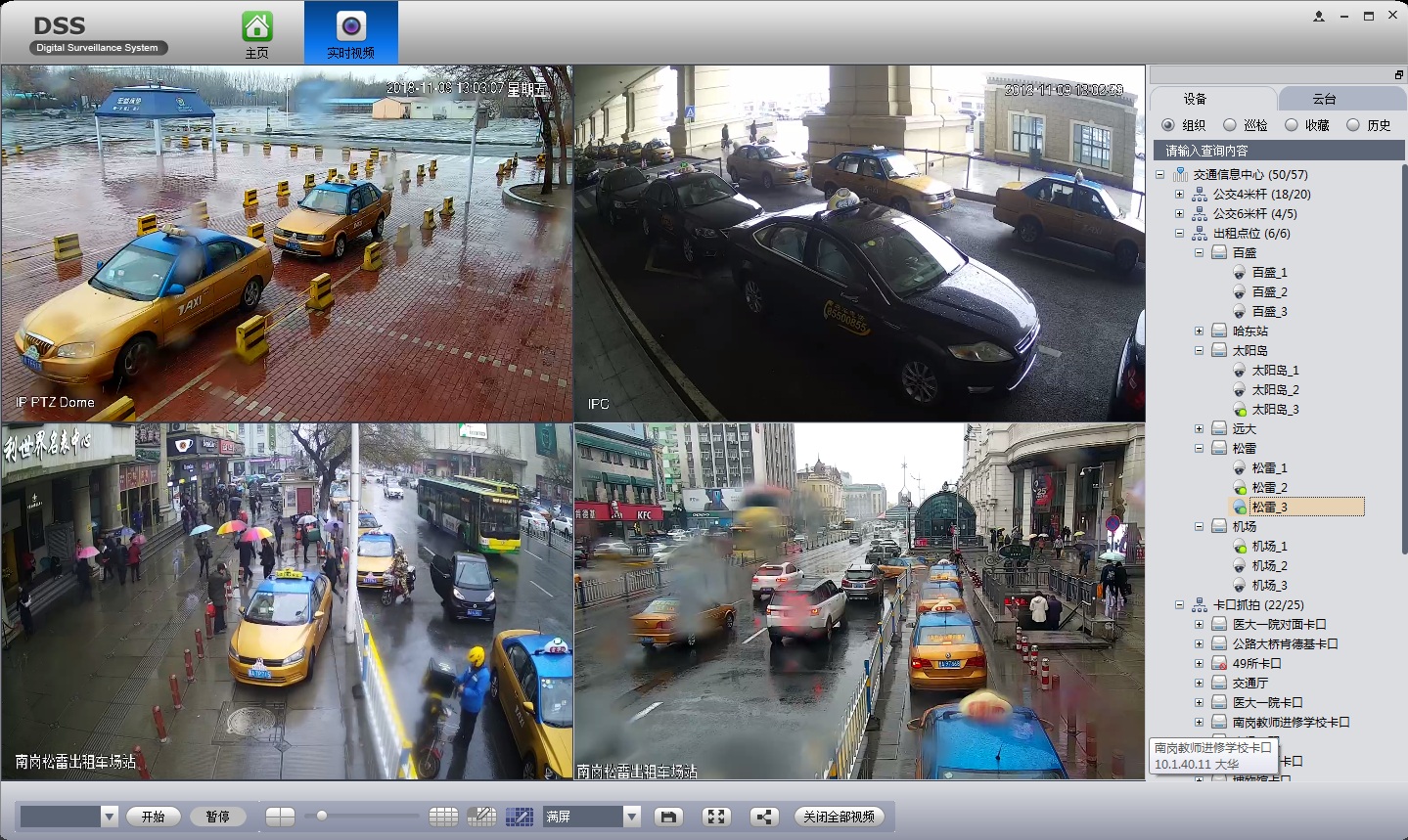GEF project helps cities reducing traffic congestion and carbon emissions
2018.12.10
611ee9bc-27fe-4979-815d-e28f3c2870e7.jpg)

Beijing - Public Transit Development Workshop was held in Beijing on November 26 as ministry and local officials, transport experts and World Bank experts discussed and reflected on the outcomes and achievements from the GEF-Large City Congestion and Carbon Reduction project.
Launched in September 2013, the project was aimed at developing policy framework for transport development and traffic management in Chinese cities, in a bid to reduce congestion as well as carbon emissions. Three cities with different sizes and development stages – Suzhou, Chengdu and Harbin – were also selected to pilot policies and practices.
Dr. Binyam Reja, Practice Manager of World Bank’s Transport Global Practice, said: “relieving congestion and reducing carbon emissions in transport sector has always been one of our key focuses. China also came up with its own plan to mitigate greenhouse gas emissions for 2030. Having visited the pilot cities myself, I’m glad to see that the project will help substantially reduce carbon emissions.”
At national level, the project has delivered several key policy studies and guidelines that helped to facilitate 'Transit Metropolis' program, transport demand management, TOD (transit-oriented development), and 'Urban public transport development performance index', which became the national standard, said Dr. Binyam Reja.
The project has involved a total of USD114.18 million, with USD18.18 million from the World Bank, and the rest from Chinese central and local governments, according to Mr. Chen Zhong, Director at Comprehensive Planning Department at the Ministry of Transport.
Chen Zhong said the project has delivered 11 policy and technical researches that will guide China's efforts to relieve congestion and reduce emissions in cities so far, including traffic demand management, transport development in the country’s 13th Five-Year Plan (2016-2020), evaluating index for new energy buses, etc.
Under the project, monitoring for greenhouse gas emissions in transport sector was also carried out in the three pilot cities between 2014 and 2018, according to Chen.
Meng Qiu, who oversees urban transport management at Transportation Service Department at the Ministry of Transport, introduced the national ‘Transit Metropolis’ program launched in 2012. A total of 37 cities joined the program during the 12th Five-Year Plan (2011-2015) period, another 50 were enlisted in the program during the 13th Five-Year Plan (2016-2020) period, with the establishment of a comprehensive evaluation system that consists of 20 mandatory targets and another 10 voluntary targets.
Meng said the ministry is currently reviewing 12 cities for their achievement under the ‘Transit Metropolis’ program. Shanghai and Nanjing have become the country’s first ‘Transit Metropolis’ last year, with Beijing and Guangzhou expected to be granted the status later this year.
In some cities that have adopted 'Transit Metropolis' program, over 60% of residents are relying on public transport as a major way of commuting. By the end of 2017, rail transport has been in operation a total of 37 cities, and 32 cities have adopted dedicated BRT (Bus Rapid Transit) lanes. The total length of these public transit lines has reached 4,570km, according to Meng.
Meng added that the technology innovation is bringing new challenges as well as new opportunities for upgrading urban transport management.
At the workshop, project management offices from Suzhou, Chengdu and Harbin also reported their progress.
With the support of the World Bank, Suzhou has introduced 280 natural gas-powered buses, established an ITS (intelligent transportation system), launched two BRT lanes. The city also carried out researches on congestion charge options for the old town area as well as carbon emission monitoring for the transport sector. As a result, the city’s public transit rate has reached 61.5%. Meanwhile, the city’s carbon emissions in the transport sector has dropped by 8.5% from 2015 to 2017.
Chengdu now has the second largest private car ownership – at 5 million – among all cities in China, eclipsed only by Beijing, which has 6 million cars. Yet unlike Beijing, Chengdu has yet to put stringent regulations on vehicle purchasing, meaning the city's private car ownership is set to rise further, posing challenges for urban traffic management. With the support of the GEF project, the city has built an ITS system and traffic demand management to assist policy making. The city is also researching on optimizing bus stops to attract more users.
In Harbin, 300 air-conditioned clean energy buses were introduced to attract more users. Dedicated BRT lanes are also currently being built which could improve the bus speed from 12km/hour to 40km/hour. Researches have been conducted to optimize the city's urban and transport infrastructure, and an evaluation system has been established to review construction projects' impact on the city's transport. The city is also optimizing transport information system in a bid to relieve congestion and reduce carbon emissions.
At the workshop, Professor Pan Haixiao from Tongji University also introduced his research and thinking on TOD's impact on urban development, with case studies in Shanghai.

Chen Sha, a researcher with China Academy of Urban Planning and Design, presented her research on mid-term (2018-2035) transportation strategy as China enters a new phase of urbanization with several city groups expected to be formed in the coming decades in the central and eastern part of the country.
Zhang Yu, Associated Professor at University of South Florida, shared her study on balancing battery capacity and set up ofwireless charging facilities along bus routes for electric buses.
Ge Yu, Director of Sicence and Technology Department at Beijing Municipal Transportation Commission, introduced how the commission is mining public and commercial transport data and discovering public commuting patterns in Beijing's busiest areas in a bit to improve transport management.
Professor Zhang Qingyu with Zhejiang University discussed her research on monitoring and collecting carbon emission data for vehicles, as well as the effectiveness and impacts of various approaches to slash greenhouse gas emissions in the transport sector.



